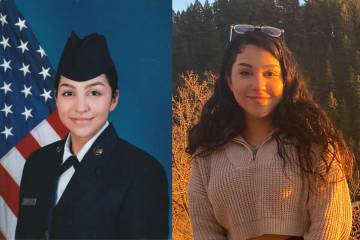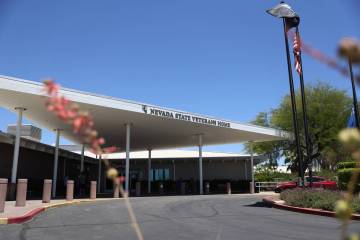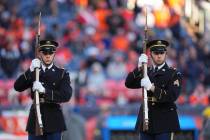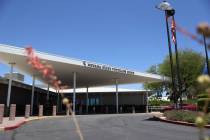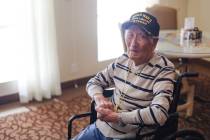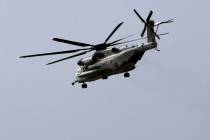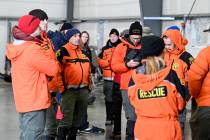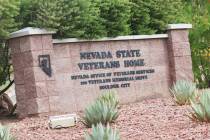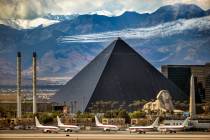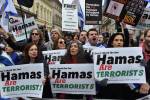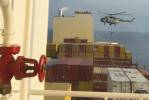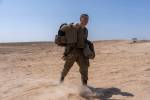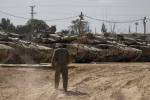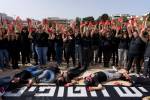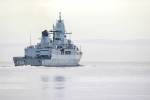Veterans Day: Soldier, sailor and Marine share war experiences
Editor's note: A soldier from Las Vegas, a sailor from Henderson, and a Marine from Boulder City - among what President Franklin D. Roosevelt described as "this generation of Americans (that) has a rendezvous with destiny" - share their World War II experiences and their thoughts on Veterans Day and the war in Afghanistan, with advice for today's service members.
■ ■ ■
There's still a glimpse of that thousand-mile stare when Angelo Fasano talks about "the longest day" he spent on Omaha Beach.
"All I can remember is bulldozers pushing bodies out of the red water," the 92-year-old former jeep driver and radioman said. He was in the third wave when the 1st Infantry Division's 3rd Battalion, 26th Regiment hit the beach during the D-Day invasion of Normandy, France, on June 6, 1944.
"I just thought, 'When is this going to be over?' "
By the time he reached Normandy he was already a seasoned soldier. Having been drafted two years earlier in Baltimore, his unit had helped drive German Field Marshal Erwin Rommel's tanks out of North Africa.
Then he fought in Sicily. He was among the throng in the olive grove when Lt. Gen. George S. Patton apologized for slapping a shellshocked soldier.
"Naturally we called him Blood and Guts," he said about the feisty general. "The only time I saw Patton was after he slapped that one boy in our outfit."
After Sicily, Fasano's Big Red One division spent six months preparing for what he called "the big operation," the one code-named Overlord that Gen. Dwight D. Eisenhower and his Allied counterparts conceived to liberate Europe from the grip of Nazi Germany forces.
It was the biggest invasion in history. About 2.7 million Allied troops gathered in southern England for the assault. The 150,000 in the landings crossed the English Channel onboard 5,000 vessels that also carried 30,000 vehicles.
In the air, more than 300 aircraft dropped 13,000 bombs to clear the French coast. More than 800 transport planes spearheaded the assault by hauling gliders and dropping 13,000 paratroopers.
At the end of the day, 10,000 Allied troops had been killed or wounded.
When Fasano's headquarters company landed at 3 p.m., Omaha Beach was in shambles. Bodies and damaged vehicles littered the shore as his platoon advanced through enemy artillery fire.
"You saw so much death and people getting hurt, I just can't really explain what it felt like," Fasano said.
As his unit headed inland toward Colleville-sur-Mer, "it wasn't long before we were surrounded." Offshore Navy guns "fired on the Germans in front of us to get us out of there and they did," Fasano said.
"I always remember that was the worst fire I had been under. They came pretty close, too. We had a liaison officer from the ship and he had to holler, 'Lift that fire!' or else they would have killed us all."
He drove jeeps for headquarters company in front of half-tracks that rolled through France, Belgium and into Germany.
Often he was the first to enter towns that had been occupied by Nazi troops.
"When you get there, you don't see anybody. Once they know you're American soldiers, all of a sudden the people start coming out. They start hugging you and kissing you."
Finally at Aachen, Germany, he couldn't turn over in his foxhole. He was so thin from sleepless nights and war stress that he weighed only 96 pounds. He was sent to Fort Story, Va., to rehabilitate.
In November 1944, he was awarded a Bronze Star Medal for valor for his previous actions near Longueville, France. "When his vehicle was subject to heavy small-arms and machine-gun fire, Private Fasano, a driver for an intelligence and reconnaissance platoon, skillfully advanced to a sheltered position and directed accurate rifle fire upon the foe," his citation reads.
Today, he said, "I will think of the soldiers, my friends that are lost" although Veterans Day has lost some meaning. "I just can't see all this advertisement for sales and things like that."
He doesn't think the U.S. military should be in Afghanistan. "The Russians tried it for years until they lost so many men. I don't know how we can go in there and change their minds."
His advice to today's soldiers: "Work hard and learn a trade."
■ ■ ■
Philip Varricchio survived World War II because "there's a certain amount of luck in being at the front."
"Some planes don't get shot down. Some do. So certainly there's an amount of luck, and God looking after you."
He was so passionate about serving in the Navy after the war broke out that he signed up while he was a student at Pennsylvania's Lehigh University.
Later he became an ensign when he graduated from Columbia's mishipmen program in 1943.
"I like the water. I still swim a half mile even though I'm 90," he said. "And I knew the Navy sleeps between clean sheets every night."
But it was more out of love for his country than the briny blue that convinced him to make a 30-year career out of the Navy.
"We were the greatest generation," he said, "because the bombing of Pearl Harbor just hardened all of the people and the troops. We all wanted to get in and do what we could, because we had to prove to ourselves that we were not going to be sitting ducks."
His first assignment was as an engineering officer on a landing craft that was commissioned in Portland, Ore., and sailed from San Diego to New Guinea in the summer of 1944.
The ship was tasked with supplying guerrillas in the Philippines with ammunition, guns and combat gear.
"We ran at night and discharged our cargo at midnight so we were out of dangerous waters," he said.
Gen. Douglas MacArthur's troops had seized control of the Philippines, "but there were still a lot of Japanese hidden and we had to be careful."
For a while he was engineering officer of an LCR, a landing craft that fired rockets. They would patrol the 25-mile-wide mouth of Manila Bay.
Things got a little dicey when the Japanese sent three kamikaze boats - 25-foot-cruisers - on suicide attacks against three of his sister ships.
"They were all blown up, because they had this belly full of rockets and each ship lost 95 percent of their crews," Varricchio said.
"That's the type of war it was starting to become. We had no front."
After that, his LCR had to patrol the mouth of Manila Bay alone. "It was lights out completely. We were all more on edge, and sometimes not very compatible. Everybody had to watch and be more alert."
His request to command his own ship was granted in December 1944 when he took the helm of USS LCI-135 (Landing Craft Infantry). He commanded the ship out of Subic Bay, supplying combat troops on islands around the Philippines through the end of the war.
After World War II he was among the first Navy officers called to respond to the Korean conflict. He served as chief navigator for 40 tank landing ships (LSTs) that plied mine-infested waters for the 1950 Inchon invasion.
Following his Navy career, at age 66, he flew his single-engine airplane out of Florida to simulate Mexico drug smuggling flights for Coast Guard detection.
Veterans Day "makes me recognize that I was part of the action, that I did my best without worrying about my own health or safety."
Afghanistan, he said, "is a tough situation. A lot of thought should be given to a policy America should have."
■ ■ ■
Ace Nasby believes he should have died three times when the 1st Marine Division invaded South Pacific islands in the fall of 1944.
That's why at 89 years old, he feels fortunate to be one of only 1,000 of the division's 50,000 combat Marines alive today.
But those brushes with death, while frightening, weren't as lasting as one experience that he says "terrified the hell out" of him. That happened when the 21-year-old assistant gunner from New York Mills, N.Y., made the landing on Peleliu.
"When I hit the beach there were bodies all over. I don't know why I thought so but I just thought in my mind, supposin' I see a hand," Nasby said.
"No farther did I go 10 or 15 steps there was a hand sticking out of the sand and it had a watch on it. There was no body attached to it."
His first close call came later when he was running across an airfield on Peleliu.
"The Japs were just bombing the hell out of us. Guys were dropping. Shells are falling. I'm running with my rifle at high port and a shell comes between my legs then skips about 10 to 15 feet in front of me and it didn't go off."
The second time he dodged a fatal bullet was when he and another Marine were carrying ammo boxes for a machine gun.
"A sniper opened up on us. We both jump in a hole. We sit there for about five minutes. We hear shooting going on. Finally the word comes out, 'Let's go.' So I get up out of the hole. I'm stretching. The guy next to me starts getting out of the hole. He gets to the cusp. Bang. Right in the head.
"Why that son of a bitch shot him, I don't know. I should have been the one who was shot."
Nasby's third close call happened when he was with a buddy, Benjamin. They were taking a hill with support from a tank. They had reached the crest.
"The tank quit firing. But when we got up to the top they started to open up again. I guess they thought we were Japs," he said.
"They let off six rounds. I drop to the right. Benny, he ran maybe 30, 40, 50 feet. The tank stopped shooting and I get up looking for Benny. He's on his left side," he said, describing the deadly wounds from the friendly tank fire. "Now if I had run with Benny I would have gotten the same treatment."
Nasby was later wounded by shrapnel on Okinawa "which was a breeze" compared to Peleliu. "I made up my mind I wasn't going to get scared."
He joined the Army after World War II and climbed the ranks to command sergeant major when he served in Vietnam. He is 100 percent disabled from exposure to Agent Orange, a dioxin-laced spray that was used to defoliate the jungle.
To him, Veterans Day means "recognition of the guys who did a job for their country. A lot of them made a lot of sacrifices. A lot of my buddies are not here."
He said the U.S. military should "absolutely not" be in Afghanistan.
"I don't see any strategic advantage to it. So we're killing Talibans. How many of them are going to be there to pop up like a weed?"
His advice to prospective Marines: "Stay out of it. I would not advise anyone to go into the military now, not the way our government is treating them."
Contact reporter Keith Rogers at krogers@reviewjournal.com or 702-383-0308.











